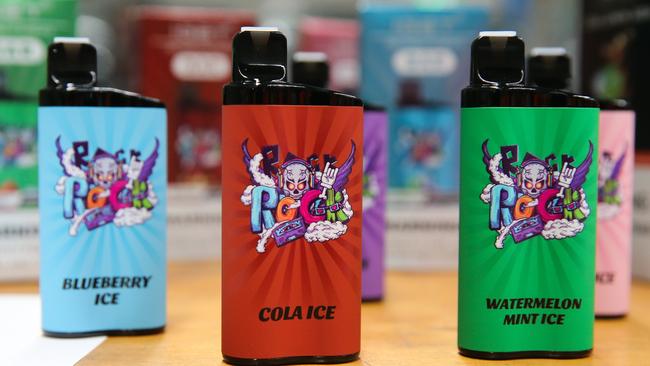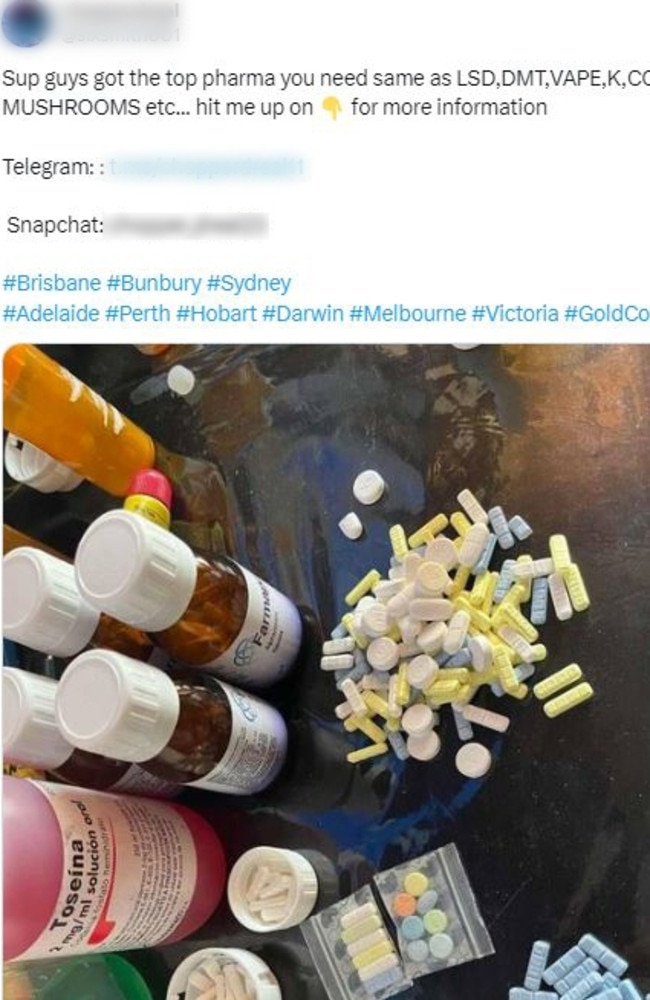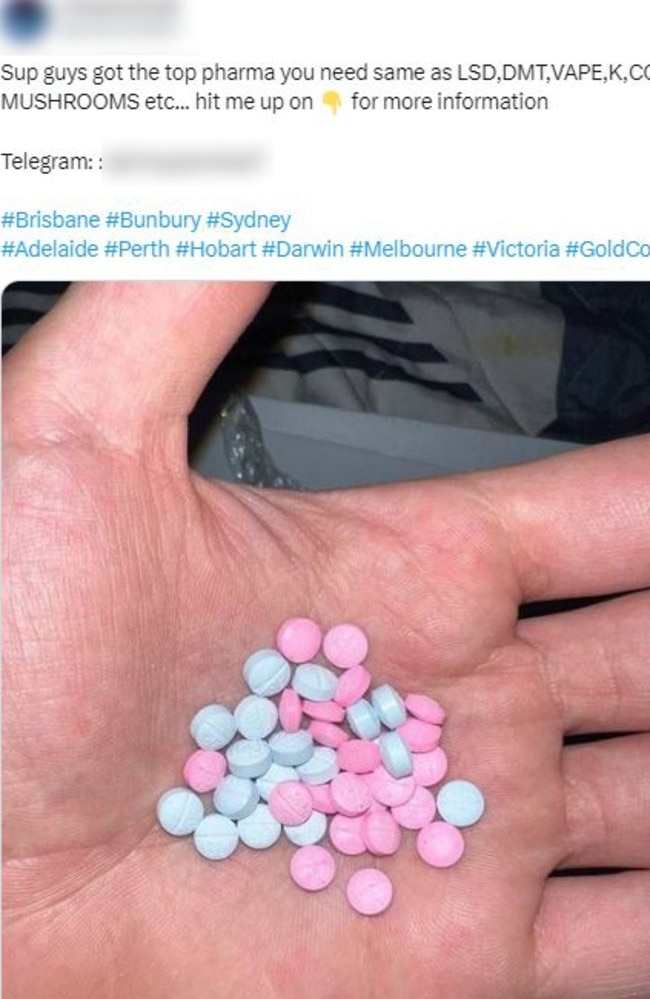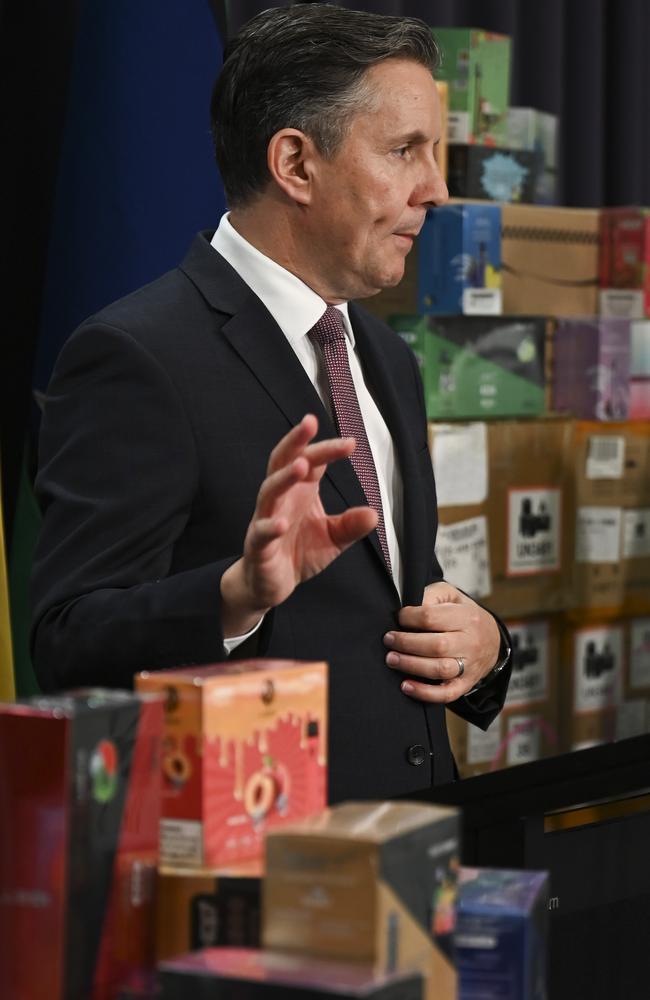‘Weak’ vape laws allowing kids to interact with organised criminals, damning new report reveals
There are fears the nation’s “weak” vape laws are allowing school-aged children to meet with organised crime drug runners in car park cash deals as Australia’s vape crisis is laid bare.

Victoria
Don't miss out on the headlines from Victoria. Followed categories will be added to My News.
There are major fears the “weak” regulations surrounding the sale of vapes are allowing children to personally meet with organised crime drug runners.
Organised crime figures and their workers, who are shipping an estimated $1bn worth of vapes into the country each year, are advertising drug and vape products online and accepting payments from children.
Those tasked with selling and distributing illegal vapes are meeting with school-aged children to do cash deals at dodgy locations, sparking concerns it could lead to selling hard drugs to kids down the track.
New industry figures from the Australian Association of Convenience Stores show 70 per cent of people are concerned or very concerned that the “weak” regulation is allowing those meetings to continue.

Eight in 10 voters say vape products should be regulated and taxed the same as tobacco, which would pump $9bn into the federal government’s war chest.
The report also shows 75 per cent of people believe the federal government’s ban on vapes has done nothing to stop children accessing the product.
The majority (71 per cent) of voters agree or strongly agree that Health Minister Mark Butler’s attempt to ban vapes has only enhanced the black market.
Industry sources say children are meeting with vape and drug dealers in carparks to do deals, while other dealers selling through encrypted apps are offering personalised deliveries.
That has generated fears children will then be exposed to illicit drugs after meeting with the drug runners.

AACS chief executive Theo Foukkare said a regulated vape system would eliminate the black market.
“For the last two years, the Australian Government has completely failed to control the nicotine vaping black market, with millions of cheap, unregulated, child-targeted vapes flooding into Australia and being sold by black market criminals each week,” he said.
“Health Minister Mark Butler is solely to blame for Australia’s youth vaping crisis and the rampant black market that he has created, which has already resulted in over 70 firebombings and multiple homicides throughout our communities.”

Deakin University Criminology expert Dr James Martin said organised criminals didn’t care how they sold their products.
“In terms of accessing the black market, this has occurred under a model in which the black market has thrived,” he said at last week’s legislation committee hearings.
“Teens find it easier to access products from black markets, not harder, because the legitimate
retailers — who we’ve heard from before — don’t sell to underage people. But the black market is very happy to. They don’t respect age restrictions.”




